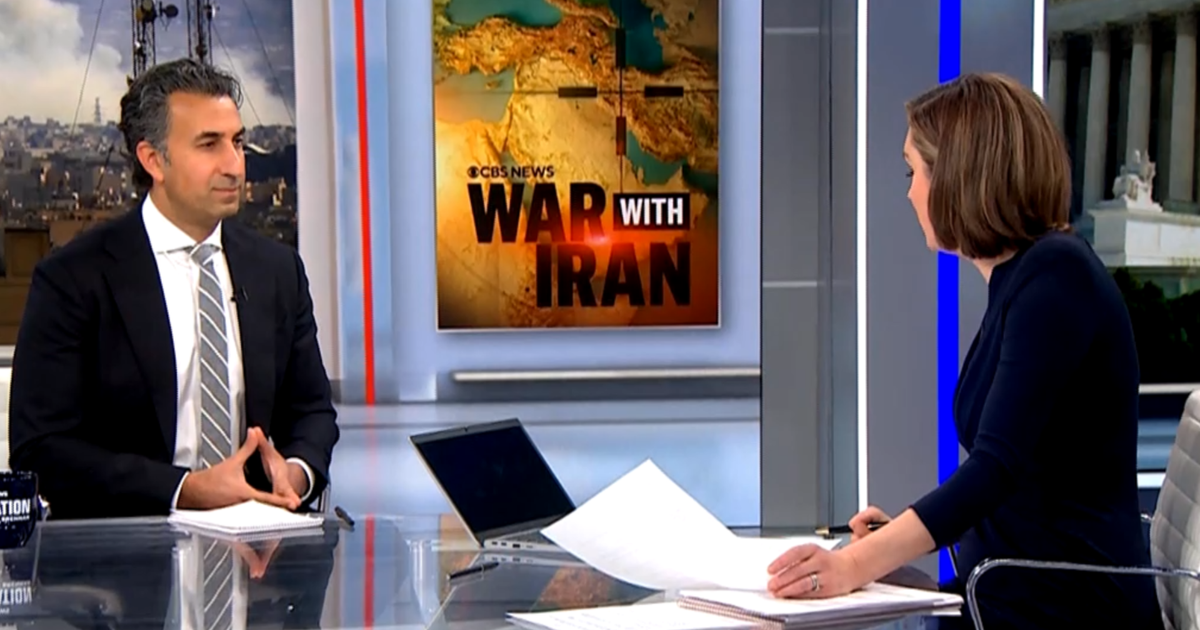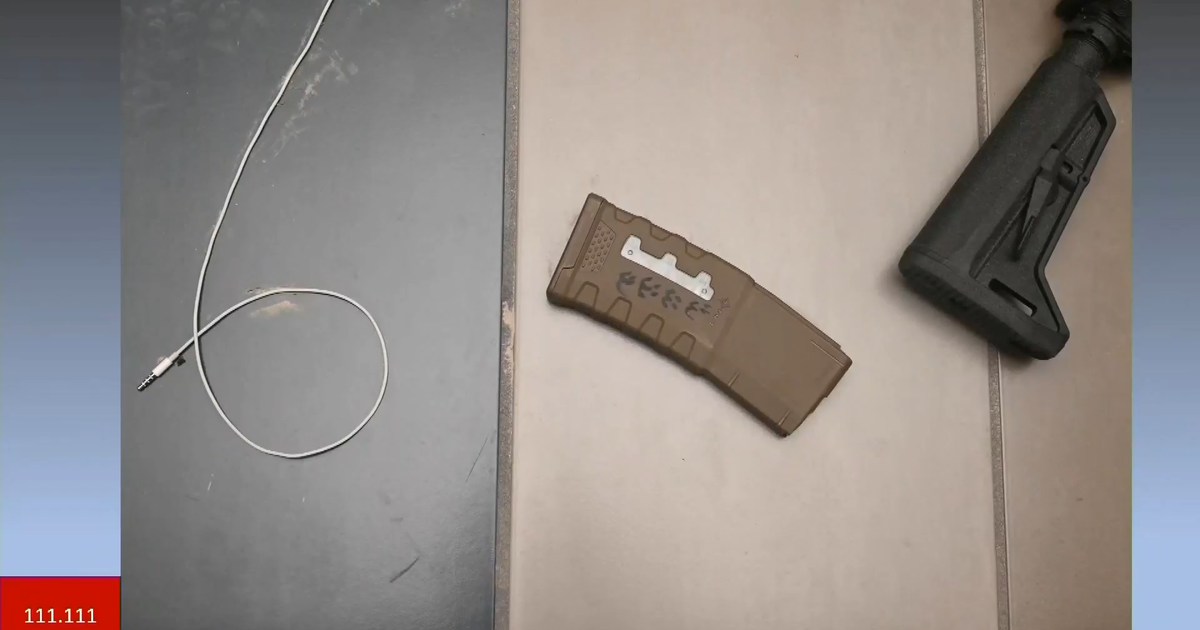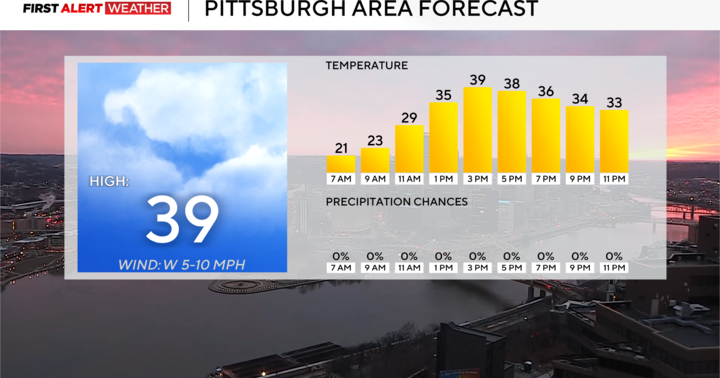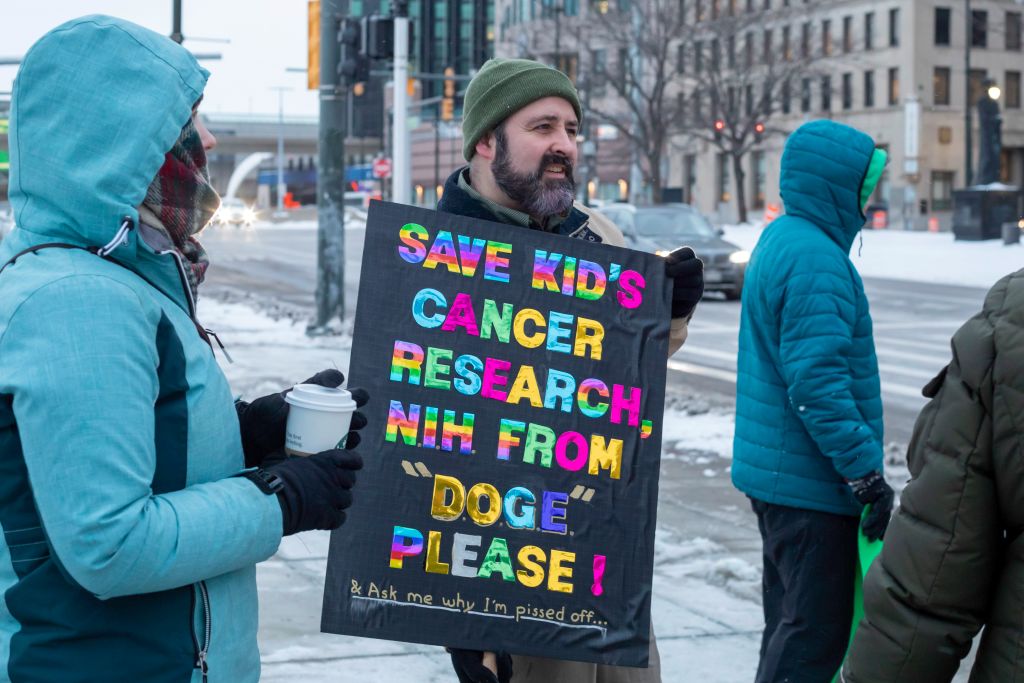Transcript: Dr. Francis Collins on "Face the Nation," September 19, 2021
The following is a transcript of an interview with Dr. Francis Collins, the director of the National Institutes of Health, that aired on Sunday, September 19, 2021, on "Face the Nation."
MARGARET BRENNAN: We'd like to now welcome the director of the National Institutes of Health, Dr. Francis Collins, to the broadcast. Thank you for taking time this morning.
NIH DIRECTOR DR. FRANCIS COLLINS: I'm glad to be with you, MARGARET.
MARGARET BRENNAN: Doctor, you predicted earlier this month that it may well be boosters are going to be recommended for almost everybody. That didn't happen on Friday. Do you still accept- expect broad approval?
DR. COLLINS: You know, we have to see how this plays out over the coming weeks because the data changes every day. I do think it was very significant that the FDA Advisory Committee voted unanimously in favor of offering boosters to people 65 and over and to others who have high risk exposures like health care professionals. So we're starting down that path. They weren't convinced yet that the data required this for younger individuals who aren't at high risk. But I think some of the data we're seeing coming in, especially from Israel, tells me that it's likely that they will get to that point. But this was a start, and I know people were confused about different messages. But in a certain way, MARGARET, this is the way it ought to be. Science sort of playing out in a very transparent way, looking at the data coming from multiple places, our country, other countries and trying to make the best decision for right now. That's what they did.
MARGARET BRENNAN: But as a medical professional, your view is a third dose of the Pfizer vaccine will be necessary for everyone?
DR. COLLINS: You know, yeah, I am a physician, a scientist, I'm not a politician, I'm trying to figure out what's the best answer here. The place that might still be somewhat questionable would be the very youngest individuals is the benefit risk needed there. But certainly, I think there will be a decision in the coming weeks to extend boosters beyond the list that they approved on Friday.
MARGARET BRENNAN: So this advisory panel, as you said, gave a green light for 65 and up and those high risk. Who does that actually mean? Dr.- Dr. Peter Marks, the FDA official who oversees vaccines, put teachers in that high risk category. Do you agree with that?
DR. COLLINS: I think they could be seen in that space, they are, after all, in circumstances, especially if they're in classrooms with kids under 12 who can't be vaccinated, where they are at higher risk of exposure than most of the rest of us. So maybe in that regard, they kind of fit into the same category as health care providers, the way in which the FDA panel made the vote. It was a little ambiguous. FDA is going to think about that. But watch this space because CDC Advisory Committee on Immunization Practices will be meeting on Wednesday and Thursday. That's going to be a very important thing for them to wrestle with what exactly is included in that group of people with high exposure.
MARGARET BRENNAN: Well, exactly because you wonder, is it just as risky being in a classroom as a hospital ward? And what does that mean for people like me who live with unvaccinated children? Does that put me in a high risk category?
DR. COLLINS: MARGARET, that is a great question. And I think that is one the CDC will probably have their committee discuss in some seriousness on Wednesday and Thursday because yes, you are in a circumstance with younger kids who can't be immunized where it is more likely that you could be exposed and somebody who's living alone.
MARGARET BRENNAN: We'll watch for that. If someone got the Moderna or the Johnson and Johnson vaccine and they fit into the 65 and older category, do they walk into their CVS this week and say, give me a third dose of Pfizer? Can you mix and match? And I know NH is looking at this, so tell me what you're seeing so far.
DR. COLLINS: So we are right in the middle of those trials to see, can you mix and match any one of the three that have emergency use authorization, can you start with one and boost with the others? We're going to know more about that just in the course of the next two or three weeks. Right now, we don't have the answer. Moderna and J&J, by the way, have also submitted their booster data, so it's likely that FDA will be able to have a comment on that pretty soon. It's not quite in sync here. You know, we have this abundance of good things. We have three vaccines that have received approval in the US. It's not surprising that they're not exactly in perfect synchronization as far as timing, but it's not far off. So people who got Moderna that would be including me need to sort of hang on here and see what the recommendation is for those of us who were interested in a booster and people shouldn't be rushing out right now and getting a booster before it's actually gone through this process, a fair number of people seem to be doing that. Hang on, people. Let's be clear, the vaccines right now in the US are doing a great job of protecting people against severe disease hospitalization. What we're worried about is that it's beginning to erode and we're seeing more breakthrough cases and we don't want to get behind this virus. We want to stay ahead of it.
MARGARET BRENNAN: But the White House did want boosters broadly available this week. Do you still believe they will be widely available this week?
DR. COLLINS: Well, part of the reason for this to get talked about a month ago was to be sure we were prepared. You know, I kind of think about this like when you're preparing for a hurricane. We have a system that starts noticing a tropical disturbance somewhere out there in the Atlantic long before there's a risk that it's going to hit New Orleans.
MARGARET BRENNAN: Right.
DR. COLLINS: This is good. That's kind of what we're trying to do with COVID 19. So part of this announcement that this might very well, if FDA and CDC agree it'd be a good thing, was to get all the pharmacies, all of the other preparations together. So there wouldn't be a mad dash at the end--
MARGARET BRENNAN: Right.
DR. COLLINS: -- to try to actually implement this.
MARGARET BRENNAN: Right, which we saw with the Trump administration.
DR. COLLINS: I think we are in a pretty good place by the end of this week.
MARGARET BRENNAN: OK, well,--
DR. COLLINS: Yes.
MARGARET BRENNAN: So we know that next month is a target for a vaccine to five and 11 year olds. What about preschoolers and the very young? When do you expect vaccines for them?
DR. COLLINS: So the trials on kids under five are still going on. The data won't be submitted to FDA for a bit longer, so I think realistically we're not going to see approval in that space until very much later this year. I wouldn't want to put a precise date on it, though. There are so many uncertainties there about FDA's review and what the data looks like. But as you said, kids five to 11, the data is supposed to come in at the end of this month and FDA will be working 24/7 to go through it. So we all hope that can happen in weeks and not months.
MARGARET BRENNAN: OK, so still potentially within this year for the very young. Quickly, as a doctor, there's going to be a massive gathering in New York City for the U.N. General Assembly this week. Are you concerned it'll be a superspreader event?
DR. COLLINS: Well, I sure hope not. We've had enough of those, haven't we? I hope people are taking this with the appropriate seriousness as far as vaccines and mask wearing and not doing silly things, gathering indoors with masks off amongst people who are unvaccinated or even people are vaccinated since we know they could also be breakthroughs and can be passing it along. So, yeah, New York, let's pay attention here. We're in the midst of a Delta surge. It is not a safe place to throw caution to the winds.
MARGARET BRENNAN: Doctor, thank you for your time this morning.
DR. COLLINS: Nice to talk to YOU, MARGARET, thank you.
MARGARET BRENNAN: And FACE THE NATION will be back in one minute with Vermont Senator Bernie Sanders. Stay with us.



